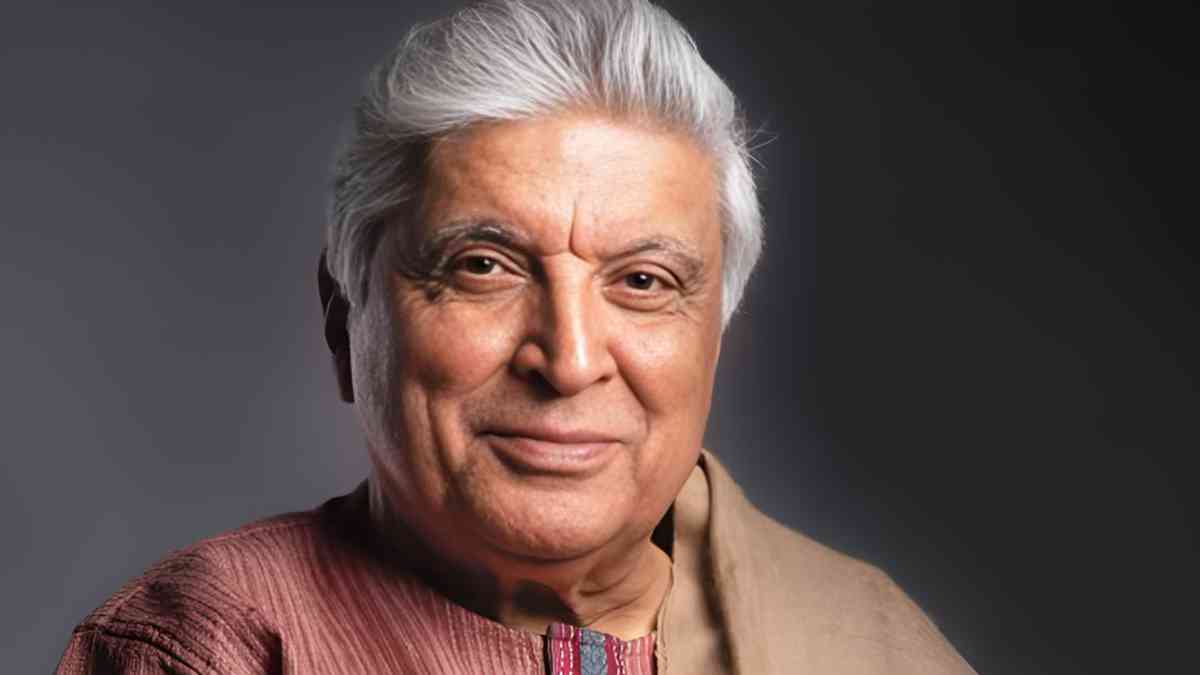“Ek ladki ko dekha to aisa laga…” Few lines in Hindi cinema have captured the wonder of love as perfectly as this. Penned by Javed Akhtar, the verse is etched into the collective memory of generations. Yet, what many don’t know is that Javed Akhtar’s journey into lyric writing wasn’t a straight path—it was almost accidental.
Born to eminent Urdu poet Jan Nisar Akhtar, Javed inherited the legacy of words. His father hoped he would continue the family tradition, but the young Javed nurtured filmi dreams of becoming a hero. He arrived in Mumbai in the early 1960s, but the reality of struggle soon dimmed those aspirations.
It was destiny—perhaps even genetics—that pulled him back to the written word. From odd jobs to ghostwriting lyrics, his pen slowly began carving a place for itself in the industry. In fact, one of his early uncredited contributions was the soulful “Apne liye jiye to kya jiye, tu ji ai dil zamaane ke liye” from Badal (1966), starring Sanjeev Kumar.
Javed’s career first exploded not with lyrics but with scripts. Teaming up with Salim Khan, he co-created some of the most iconic screenplays in Indian cinema. Together, the duo redefined Bollywood storytelling in the 1970s with films like Zanjeer, Deewaar, Sholay, and Trishul.
They introduced the “angry young man,” elevated the role of dialogue, and transformed Hindi cinema into a larger-than-life canvas. For nearly a decade, Salim–Javed ruled Bollywood. But when the partnership ended in the early 1980s, Javed was left at a professional crossroads.
Javed Akhtar had long been writing poetry privately, often reciting at mushairas (poetic gatherings). His transition to lyricist happened almost by chance.
Director Yash Chopra, a lover of Urdu poetry, once heard Javed recite his verses. Deeply impressed, Chopra urged him to pen lyrics for his film Silsila (1981). Javed initially resisted, insisting he was a scriptwriter, not a lyricist. But Chopra’s persistence won—and the result was magical. Songs like “Dekha ek khwab” and “Yeh kahaan aa gaye hum” became instant classics, announcing the arrival of Javed Akhtar, the lyricist.
His reputation grew further with Saath Saath (1982), whose songs like “Tumko dekha to yeh khayal aaya” struck a delicate balance between simplicity and poetry. Then came the game-changer—“Ek do teen” (Tezaab, 1988)—a massy number that showed Javed could write both refined ghazal-style lyrics and pulsating commercial hits with equal ease.
Over the years, Javed Akhtar became one of the most versatile and celebrated lyricists of Indian cinema. He combined a poet’s sensitivity with a deep understanding of cinematic storytelling.
Awards & Honours:
- Padma Shri (1999)
- Padma Bhushan (2007)
- Eight-time Filmfare Award winner for Best Lyrics
- Sahitya Akademi Award (2013) in Urdu, for his poetry collection Lava—the first Bollywood lyricist to receive this prestigious literary honour.
Even beyond films, his contribution to Indian poetry, literature, and social thought makes him one of the most influential cultural voices of our times.
From scripting the lives of characters like Vijay in Deewaar to penning words that became an entire nation’s love anthem in 1942: A Love Story—Javed Akhtar has proved that stories and songs are two sides of the same coin.
He began as a rebel, dreamed of being an actor, became a legendary scriptwriter, and finally returned to his roots as a poet. And in doing so, he enriched Indian cinema in ways few others have.
On his birthday, Glamsham.com celebrates Javed Akhtar—the man who taught Bollywood that words, whether spoken in a screenplay or sung in a song, have the power to become eternal.

